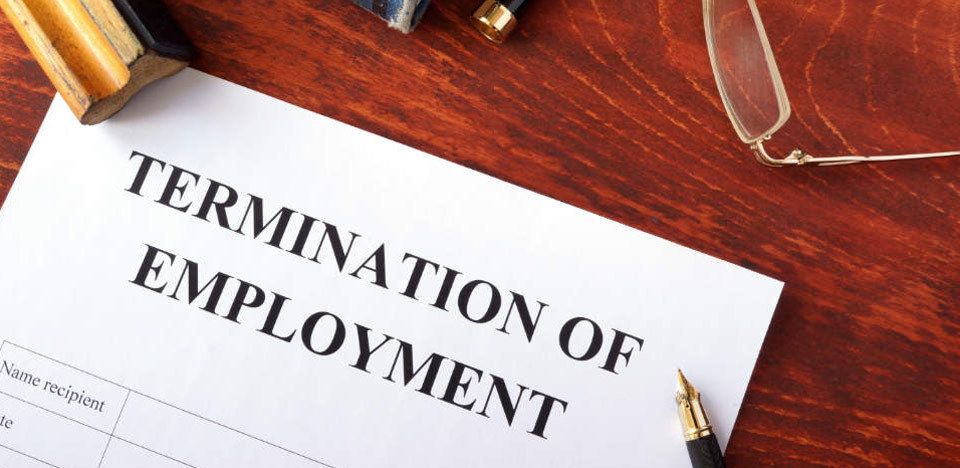
Losing a job is always a horrible experience, but when the termination was wrongful, the experience is profoundly worse. You have your reputation at stake as well as your current and future financial security. California takes wrongful terminations seriously. Whether you are a lawyer who is expecting a child, a janitor with questionable immigration status, or an executive in a well-respected business – if you were wrongfully terminated, you deserve compensation for what you have suffered.
At Sirmabekian Law, we represent clients throughout Los Angeles who work in various fields and have varying levels of experience. We have heard and seen it all. We know to what low levels employers will go to “get rid of” or “silence” employees who speak up, file a legitimate complaint, or otherwise do something well within their rights but that upsets the employer in some capacity. Common questions clients have had about wrongful termination in Los Angeles include:
- What is California's law on wrongful termination in a nutshell?
- What protections do California employees have?
- What responsibilities do employers in California have?
- What remedies are available to employees in California who have been wrongfully terminated?
- How are Wrongful Termination Claims made in Los Angeles?
- How long do you have to file a claim or complaint?
- What do employees need to prove their wrongful termination case in Los Angeles?
- Who should you contact in Los Angeles to discuss your wrongful termination claim today?

If you believe you have been wrongfully terminated from your position, contact Sirmabekian Law today to schedule a free initial consultation. We will review your case and provide you with our initial thoughts and options. This way, you can make an informed decision about how you want to pursue your case and right the wrong that has been done against you. In the meantime, here’s an overview of wrongful termination laws in California.
Under the California Fair Employment and Housing Act (FEHA), it is unlawful for an employer to “discharge or to terminate” employees wrongfully. Other laws that may apply include California Family Rights Act (CFRA) and the New Parent Leave Act (NPLA). By wrongful, this typically means an employee is not hired, is not promoted, or is terminated due to his or her status as a protected class based on:
- color
- race
- religious creed
- national origin, ancestry
- medical condition
- physical or mental disability
- marital status (e.g., AIDS/HIV status)
- victim of domestic violence or stalking
- sex, gender
- gender identity, gender expression
- military and veteran status
- sexual orientation
- age (40 and above)
- genetic information
- pregnancy, childbirth, breastfeeding, or related medical conditions.
FEHA codified in Cal. Gov. Code 12900 et seq., applies to employers who have five or more employees unless these employees are the employers:
- parents
- spouse, or
- child.
The law also does not apply to religious associations or corporations that are not organized for private profit. California laws on wrongful termination bar discrimination in all forms of business practices. This means an employer cannot:
- discriminate based on a protected class; and
- cannot maintain any of policy – even if facially neutral – that has a disproportionate effect on employees of a particular protected status (referred to as disparate impact).
Discrimination cannot be applied in any:
- screening, applications, and interviews
- hiring, transferring, promoting, separating, or terminating
- advertisements
- participation in an apprenticeship or training program, union, or employee organization.
- working conditions, including compensation
There are other reasons, too, for wrongful termination. You may have been wrongfully terminated if you were:
- discriminated against due to your political beliefs; or
- retaliated against because you are a whistleblower; or
- retaliated against because you complained about unpaid wages or health and safety issues or Labor Code violations;
- quit because the conditions were so intolerable or unsafe (known as constructive termination); or
- laid off via a mass layoff but were not given a 60-day notice, which is a violation of the Worker Adjustment and Retraining Notification Act (WARN Act).
In any one of these situations, you deserve a remedy that results in a just and fair outcome.
California is an at-will employment state. This means – absent a contract, agreement, or an exception to a statute or policy – employers in Los Angeles and throughout California can terminate an employee for any reason and at any time. The last part is where confusion sets in. Employees think that because an employer can fire them for any reason and at any time, then it doesn’t matter if the employer did so because you just advised your supervisor you are pregnant or because you are of Mexican ancestry and your boss wants a wall built and for all Mexicans to be sent back to Mexico.
But it does matter. The freedom to terminate anyone at any time is limited to a certain extent. When you belong to any one of the above-protected classes, you are protected from termination based on your status in a protected class. You are also protected if you are a whistleblower or complain about unpaid wages, poor health and safety conditions, or violations of the Labor Code.
These protections are available to all employees, including:
- hourly employees
- salaried employees
- contract employees.
Employers are required by California law to take all necessary steps to prevent discrimination and harassment. To fail to do so means the employer engages in unlawful employment practice. This is in accordance with Cal Gov Code § 12940.
Many remedies are available to California employees who have been wrongfully terminated. Remedies that may be available to you include:
- past lost earnings (back pay)
- future lost earnings (front pay)
- reinstatement (if terminated) or hiring (if not hired)
- promotion (if denied to you on the basis of discrimination)
- out-of-pocket expenses
- policy changes (if discrimination was based on a policy)
- training (to educate employer and employees on wrongful termination)
- reasonable accommodations (for example, in cases where discrimination is based on a medical condition)
- damages for emotional distress (emotional distress in itself is painful, but it can also lead to a host of health problems)
- punitive damages (when the discrimination is so egregious)
- attorney’s fees and costs.
How wrongful termination cases are conducted in Los Angeles depends entirely on the type of wrongful termination.
If your wrongful termination claim is based on discrimination, harassment, or retaliation, then you will likely have to file a pre-complaint inquiry with the California Department of Fair Employment and Housing (DFEH). Through this filing, you can request that the DFEH:
- investigate and solve your claim; or
- issue a right to sue notice, which allows you to take your case to court.
If your wrongful termination claim is the result of a breach of contract or violation of public policy, you can file your complaint directly at the appropriate state court – in Los Angeles, it is typically a Los Angeles Superior Court.
Once the claim is filed at the appropriate court, the employer and any other adverse party must be served the complaint according to California Rules of Civil Procedure. This starts the claim process in court, and the employer will have an opportunity to respond to the complaint. Hearings will be set and the discovery phase will allow you and your attorney to request certain documentation and admissions from the employer. The employer will have the same opportunity.
If a settlement is not reached, then the case may go to trial. Everything depends on the facts and circumstances, and in some cases, the trial may render a better outcome than a settlement. There are, however, always risks with a trial because a jury can be unpredictable. It is always best to consult with your attorney on the best options for you.
You usually have within two years to file a complaint about wrongful termination. The statute of limitations, however, for wrongful termination in California varies according to the type of lawsuit filed.
- You have one year from the date of termination if you were wrongfully terminated due to discrimination based on a protected class or were harassed and the claim is filed at the DFEH.
- You have an additional 90 days from the date the DFEH made a ruling to file a complaint in a state court if the DFEH did not resolve the claim or issued a right to sue notice.
- You have two years from the date of termination if you were wrongfully terminated in violation of public policy where you participating in protected activity (e.g., filing a complaint with the Equal Employment Opportunity Commission, which is a protected act).
- You have two years if an oral or implied contract was breached.
- You have four years if a written contract was breached.
If you fail to file within the correct statute of limitations, your case will be dismissed. Only if there are extenuating or serious circumstances may you be eligible for an exception. It is important to seek an experienced employment law attorney in Los Angeles who will make sure you file timely.
What you need to prove to win your wrongful termination are depends on what was your wrongful termination experience. You will need to prove:
- an employment relationship existed; and
- you were terminated by your employer; or
- you were forced to quit; and
- termination or constructive termination was wrongfully made.
In discrimination cases, you must show that you are a member of a protected class and that the latter was consequential to the termination.
In public policy violation cases, you must show that you were terminated for one of the following reasons:
- report of a statutory violation (the reporting of which benefits the public);
- refusal to violate a statute;
- performance of a statutory obligation; or
- performance of a constitutional right.
In harassment cases, you must show that you were terminated due to a complaint regarding the harassment.
In breach of contract cases, you must show the termination was due to a breach of the contract.
How you prove your specific case will depend on the circumstances and facts and, as noted above, the type of case. It is important to keep notes of what is or has happened in the workplace, including the names of relevant persons and copies of relevant documents.
Wrongful termination cases in California can be complex. Sometimes, the first mistake is just not knowing what to do or where to go. Your best option is to find an experienced employment law attorney, like Sirmabekian Law, to help guide you through the process and make sure you are informed each step of the way. Though your case may not be able to go straight to court, your attorney will make sure you follow the right process for your specific case. Any technical error can mean a mishap that prevents you from obtaining the compensation or remedy you deserve.
At Sirmabekian Law Firm, we will make sure your wrongful termination case is thoroughly investigated, timely filed with the appropriate agency or court, and aggressively pursued to render an outcome that benefits you. Contact Sirmabekian Law Firm online or at 818-473-5003 to schedule a free initial consultation.
Get A Free Case Evaluation
We are here to help you with law questions
 English
English Spanish
Spanish